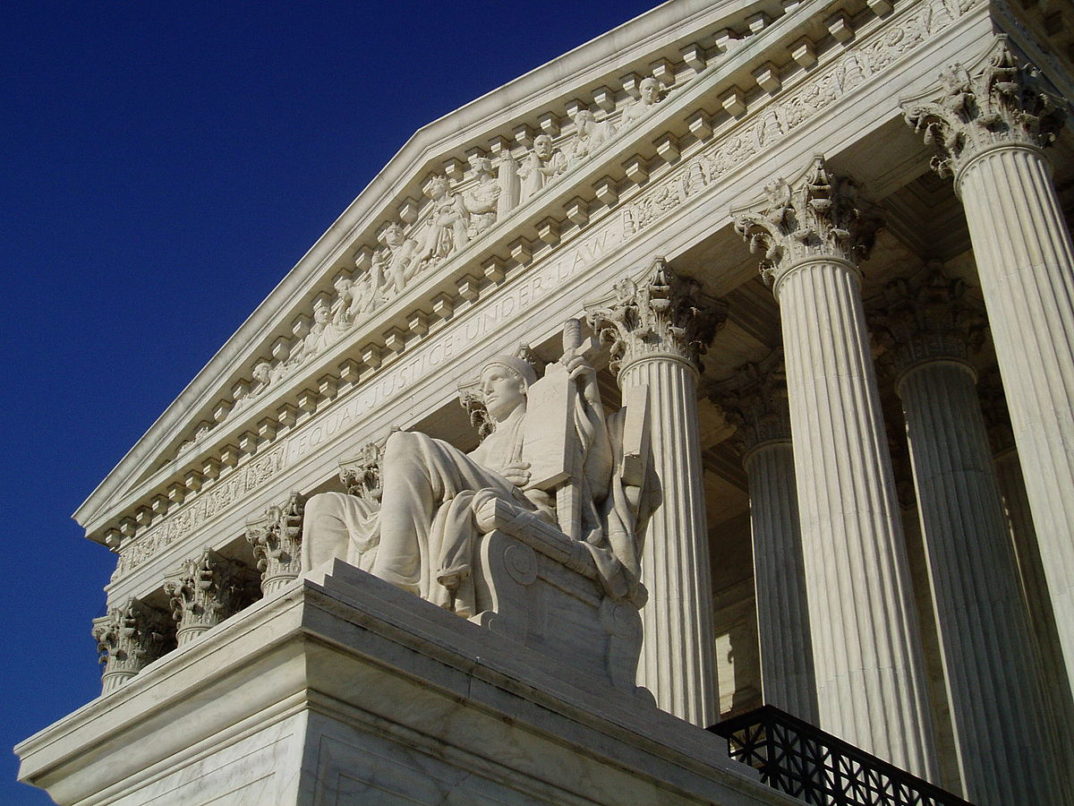Free Riders, Agency Fees, and the Fairness of Public Sector Unions
An upcoming case in the United States Supreme Court could have significant effects on the state of the American Labor Movement: Janus v. American Federation of State, County, and Municipal Employees, Council 31. At stake is whether public sector unions can require employees who have not joined the union to pay agency fees—fees that go to exclusively cover the costs of negotiating the labor contract that covers all workers at a workplace, union members and non-members alike. If the court were to rule against the legality of required agency fees, this would overturn a previous Supreme Court decision in Abood v. Detroit Board of Education, which held that agency fees were allowable, just so long as those fees were not used for the political or ideological activities of the union.
According to The Atlantic, Mark Janus (the plaintiff in this case) argued in his petition that “because unions play a powerful civic and political role when striking collective-bargaining agreements,” it is impossible to separate this work from their other ideological/political activities. As such, required agency fees “amount to compelled speech” and violate first amendment rights. While opponents of agency fees lean on free speech arguments, proponents emphasize that agency fees ensure that no one is a free rider. All employees, union and non-union alike, benefit from the typically stronger contract that results from collective bargaining (higher wages, better fringe benefits, job protection, etc.). Non-members who do not financially contribute to collective bargaining are free riders because they receive benefits that they do not pay for, and that only exist because other people are willing to pay for them. This does not seem fair.
The notion that being a free rider is somehow unfair, I think, is widely felt. However, some have tried to undercut it. In Anarchy, State, and Utopia, Robert Nozick, libertarian philosopher, provides a radical defense of the minimal state—a kind of government that only protects individual rights of life, liberty, and property and does not use its force to redistribute goods, “make people moral, or protect people from harming themselves” (from the Stanford Encyclopedia of Philosophy). If “free riders” can be legitimately forced to participate in social schemes to which they did not consent, then a much more interventionist state than that depicted in the minimal state would also be justified.
Nozick describes a provocative thought experiment to undercut what he calls the fairness principle. As Nozick describes it, “this principle holds that when a number of persons engage in a just, mutually advantageous, cooperative venture according to rules and thus restrain their liberty in ways necessary to yield advantages for all, those who have submitted to these restrictions have a right to similar acquiescence on the part of those who have benefited from their submission.”
Consider that some of your neighbors set up a public address system and decide to use it to provide public entertainment. They decide that, each day, a different person is responsible for running the system (playing music, reading the news, etc.). They put your name on the list to run the system. When your day comes, are you obligated to run the public entertainment system? You have benefited from the system. You’ve listened to the music that others have played on the system and have been informed by the news reports they have read. However, this doesn’t seem to obligate you to participate, Nozick wants us to see. You may have enjoyed the programs, but you may still think not having these programs played on the PA system at all would be preferable to you having to give up a whole day to run the PA system yourself.
Consider further the question of enforcement of this obligation. Even if you may be obligated to participate in social schemes like the public entertainment system, enforcing your participation seems quite objectionable. Nozick writes, “You may not decide to give me something, for example a book, and then grab money from me to pay for it, even if I have nothing better to spend the money on.”
Non-union members may benefit from the collectively bargained contract, but they may nonetheless still prefer to forego those benefits rather than pay the agency fees. If we do not think that the person in the public address system is obligated to participate, then the non-union members also are not obligated to participate by paying agency fees.
Might agency fees be relevantly different from the public address system thought experiment? For one, labor unions are legally required to bargain for all of the workers in their bargaining unit and represent them in contract disputes. Workers who don’t consent to the union cannot be carved out from representation. Second, the establishment of unions that bargain on behalf of all workers follows a legally prescribed democratic process where the workers vote on whether a union should be formed. Unlike the PA system, a union could not legally form at the initiative of only a few colleagues. Finally, the PA system thought experiment imagines a situation where you are already a member of the community before the PA system is instituted. This is not always the case for unionized workplaces. Workers often join workplaces, knowing in advance that it is unionized. Do they have a right to object to a pre-existing arrangement of which they were already aware? If I moved into a neighborhood where I knew the PA system existed, would I be within my moral rights to refuse to participate? Perhaps the answer to these questions is yes, but such a difference does weaken the force of this intuition.
It will be interesting to see if similar moral considerations will factor into the legal arguments that will be brought before the court in this case.





